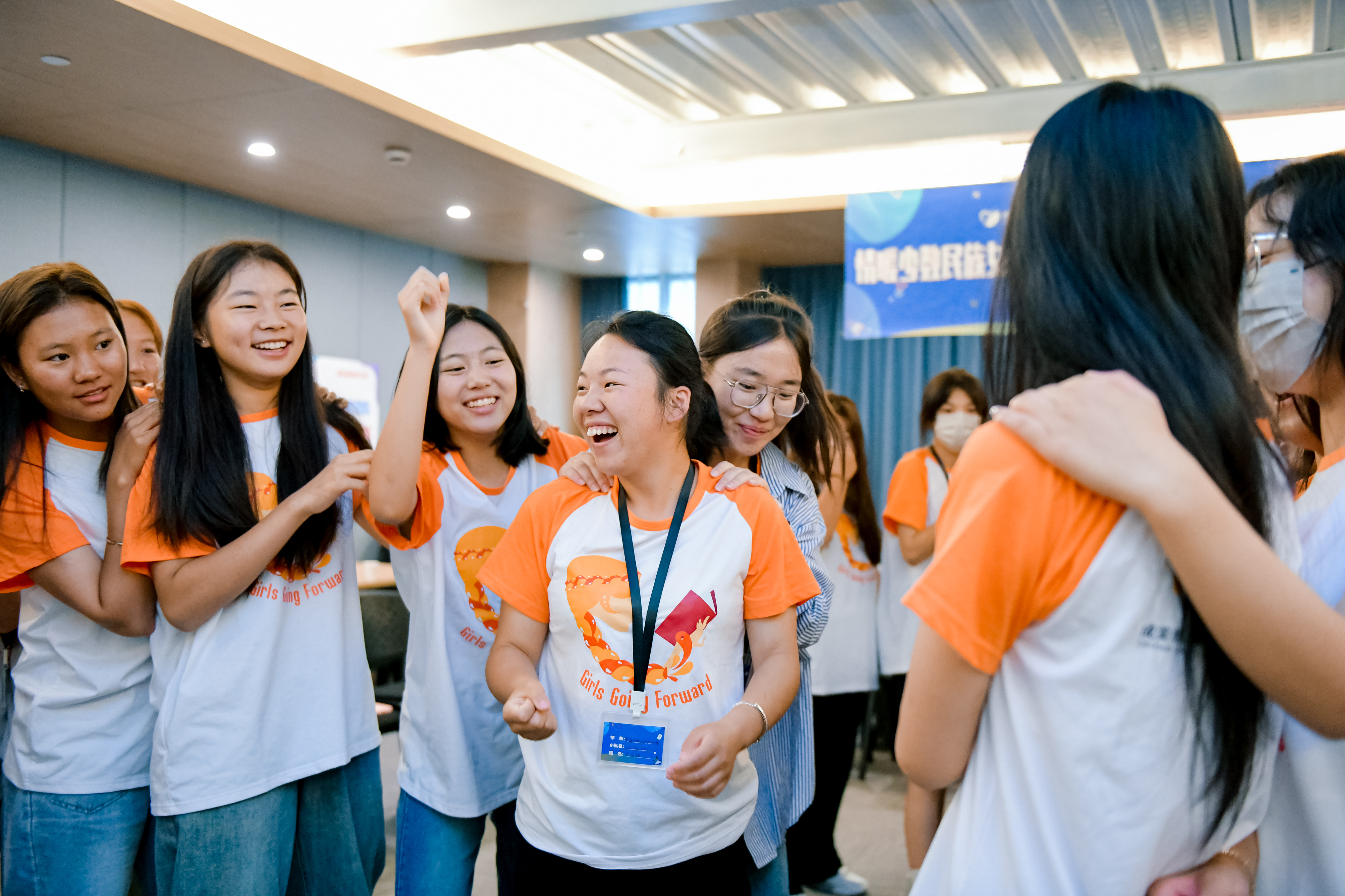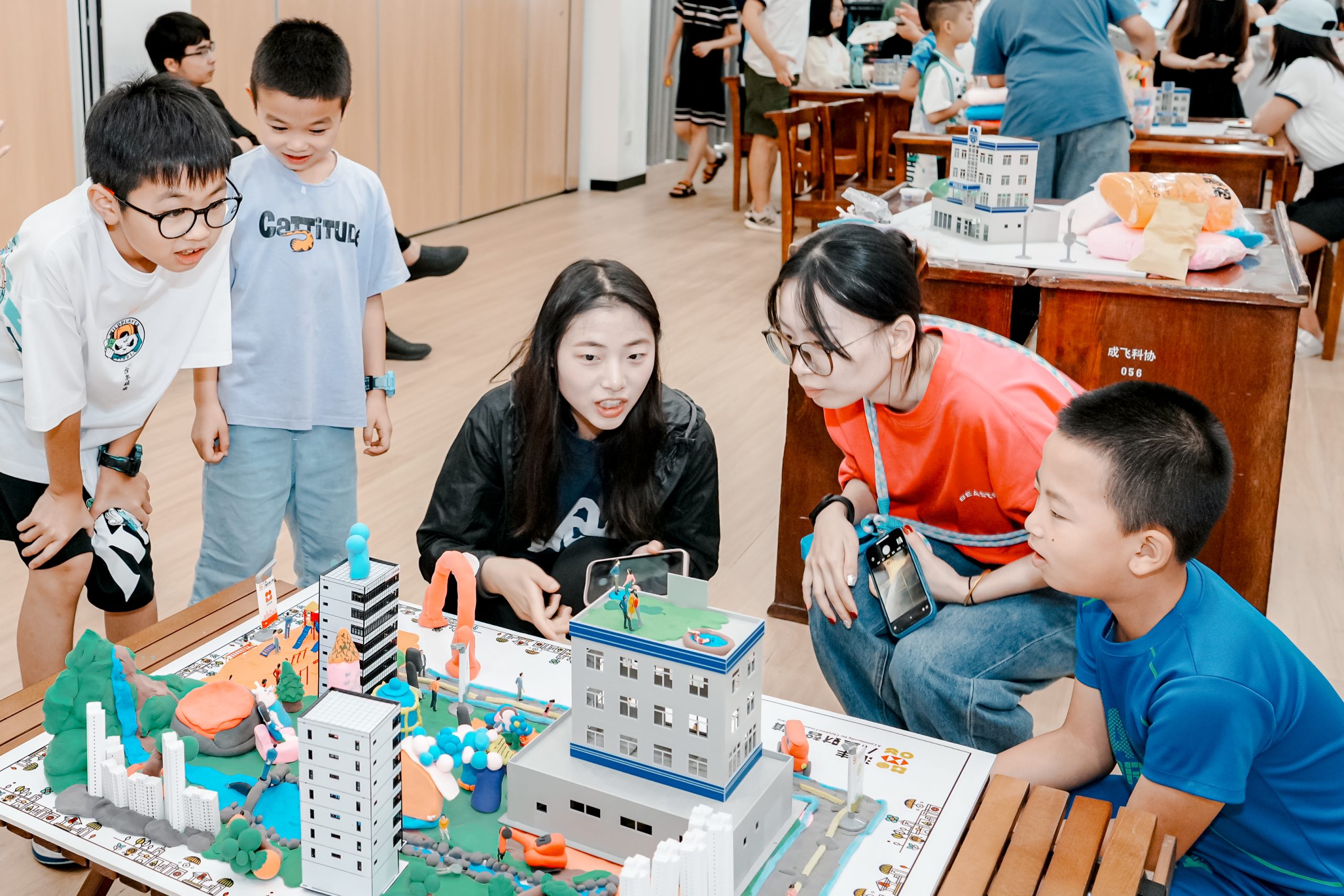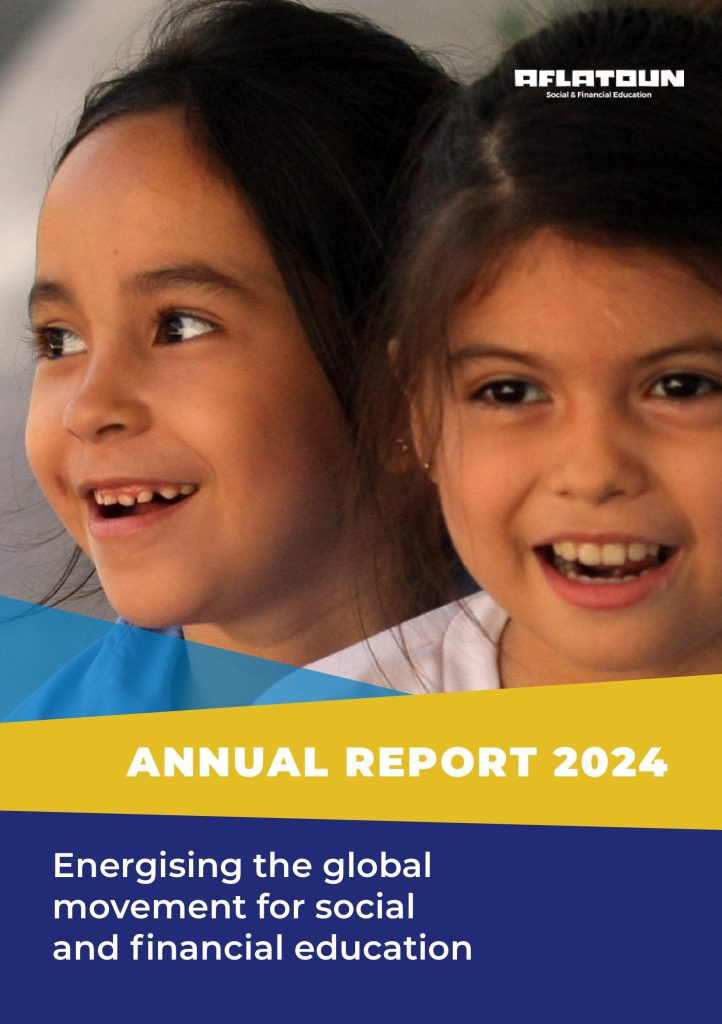Shanghai Better Education Development Center (BeBetter) is an organisation founded in 2009 in China. Their mission is to provide high-quality and diverse financial literacy education; they aim to empower independent, warm-hearted, and responsible economic citizens to live a wonderful life.
The organisation is dedicated to addressing a range of significant social issues closely linked to the economic well-being of individuals and society.
- Insufficient economic decision-making ability: A lack of financial literacy can hinder individuals from making sound economic choices, often leading to unwise investment decisions, overspending, or poor personal financial management. These issues contribute to personal economic struggles and can even impact the economic stability of society.
- Financial fraud: The rise of digital finance has made individuals with limited financial literacy more vulnerable to financial fraud and online scams. Such incidents not only result in personal financial losses, but also introduce potential instability into society.
- Distorted consumption concepts: Within the landscape of digital finance, unhealthy consumption habits can lead to personal financial challenges and negatively influence broader societal attitudes toward spending and consumer culture.
- Increased entrepreneurial risks: As the entrepreneurial environment grows, financially inexperienced entrepreneurs face heightened risks, increasing the uncertainty and challenges associated with starting a business.
- Unbalanced socio-economic development: Financial literacy education varies by region and demographic, and some groups may lack the resources to participate in economic activities fully. This disparity restricts regional socio-economic growth, contributing to imbalances in development.
In conclusion, financial literacy education addresses issues such as personal economic decision-making, financial fraud, consumer behaviour, entrepreneurial risk, and socio-economic equality. Through targeted curricula and activities for various age groups, this education aims to raise financial literacy, help mitigate these social issues, and foster social harmony and progress.

Our Partnership
In 2009, BeBetter’s founder, Alan, unexpectedly came across Aflatoun International, and became interested in its focus on the social and economic empowerment of children and youth. Recognising the critical need for financial literacy education—a component largely absent from traditional education—he committed to bringing the Aflatoun curricula to China. From the core programme, a contextualised Chinese version of the Aflatoun manual was developed, aiming to strengthen children’s life skills and financial literacy.
Currently, BeBetter is using the AflaYouth curriculum, aimed for young people aged 16-24 with a focus on life skills, financial and entrepreneurship education to prepare youths with the transition from school to work, and from childhood to adultuhood.
The importance of financial literacy education in China
Financial education is essential in the country for several reasons and its impact can be observed in several key areas:
I. Personal Growth and Development
Financial literacy education plays a critical role in the personal development of young people in China. They acquire essential financial knowledge and skills through structured financial education, including budgeting, risk assessment, and financial planning. These skills empower them to manage personal finances effectively and develop economic thinking and decision-making abilities. Furthermore, financial literacy education helps instil values like responsible consumption, wealth management, and social responsibility, laying a strong foundation for their growth as responsible and conscientious members of society.
II. Steady Growth of Household Wealth
At the household level, financial literacy education is also highly valuable. By enhancing their financial literacy, family members can manage household finances more effectively, plan expenses and savings prudently, and increase non-labour income sources, thereby improving the household’s overall financial health and quality of life. This aligns with the broader goal of achieving a moderately prosperous society. Additionally, financial literacy education promotes better communication and cooperation among family members, as they work together to establish and execute household financial plans, fostering family harmony and stability.
III. National Economic Security and Stability
From a national perspective, financial literacy education contributes to economic security and social stability. A financially literate youth population forms a strong foundation for the future economy, and their financial decision-making will significantly impact the nation’s economic trajectory and stability. Thus, enhancing financial literacy education serves as a long-term safeguard for economic security. Financially literate young people are better equipped to handle economic challenges, strengthening national economic development and societal stability.
IV. Adapting to the Demands of the Intelligent and Digital Era
As the digital age advances, the financial landscape is undergoing rapid change. Traditional financial skills alone are no longer sufficient to meet the demands of the modern economy. Strengthening financial literacy education enables young people to master current financial technologies and tools, such as electronic payments and online investment platforms, preparing them to be more competitive in the evolving job market.
In conclusion, financial literacy education in China is essential for the personal development and well-being of young people and their families and the country’s economic growth and social stability. Prioritising financial literacy education is thus crucial to fostering future citizens with strong financial knowledge and skills.
BeBetter’s Initiatives on Financial Education
The organisation has carried out multiple inspiring activities that teach students about saving, spending, planning and social education. Some examples of these are:
1. A Community for Children’s Financial Literacy
A unique community model has been established in various cities, utilising child-friendly environments and interactive experiences to integrate a “token” system that facilitates market circulation, creating an immersive community setting where children can engage in financial learning. Children become buyers and sellers in this space, developing foundational skills such as shopping, price comparison, and trading within a simulated market. Through earning “income” in activities like market management, job simulations, consumer interactions, entrepreneurial projects, and charitable donations, they learn the value of goods and the basics of trade, all while experiencing the processes of currency circulation and redistribution through town tokens.
The programme offers a range of community activities for children and families, such as financial literacy board games, fun carnivals, financial literacy camps, and Project-Based Learning (PBL) on financial intelligence. It actively engages parents, local communities, schools, government entities, social organisations, and supportive enterprises to foster a well-rounded financial education for children.
2.The Exploration and Growth Camp
The Exploration and Growth Camp is one of the programme’s most celebrated activities, highly favoured by teachers and students. Held annually during summer and winter vacations, the camp invites teenagers from across the country to gather in major cities for a week-long programme that includes team-building exercises, hands-on workshops, urban exploration, role-playing, and other interactive events. The camp focuses on three developmental areas: cognition, emotion, and behaviour, enabling students to reflect on their own identities, make new friends, explore new environments, push their limits, and grow into confident and independent individuals.
Through realistic and practical scenarios, campers apply what they’ve learned. Opportunities to practice public speaking and open expression are built into the camp, allowing participants to communicate freely and develop self-assurance. The camp encourages students to challenge themselves, step out of their comfort zones, and build confidence.
3. Digital Volunteer Teaching
In collaboration with Tencent’s Sustainable Social Value Organization, the programme also offers digital volunteer teaching via online platforms. Volunteers work in teams of 2-4 to provide financial literacy classes each semester to rural primary school students. Through this digital platform, volunteers benefit from intelligent course scheduling and online training, gaining diverse teaching experiences and feedback within a structured digital system.

Xiao Lan opens her small business selling crafts and paintings
At 13, Xiao Lan began second grade in primary school. Due to a mental health challenge, she was introverted and lacked confidence, which made it difficult for her to connect with her classmates. However, in her Aflatoun class, she gradually discovered her strengths and uncovered a talent for painting, which helped her build confidence and social skills.
Through the programme’s curriculum, Xiao Lan honed her painting skills and learned financial planning and management. Reflecting on her experience, she said, “My view on Aflatoun changed during the flea market project. Through the preparation for the event, we started a small business! We decided on products to sell, the type of shop we wanted, our target audience, and expenses. After finalising our plans, our group created posters and held the flea market on campus one afternoon. It was my most memorable lesson—many people from school visited our booth, and it was even reported in our town’s newspaper! I earned 39 yuan, which was my first self-earned income.”
Over time, Xiao Lan became more independent and eventually launched a small online business on the Chinese social media platform RED BOOK. Currently, she has over 24,000 followers and earns around 1,000 yuan per month from selling her handmade crafts and paintings. This achievement has given her a sense of pride, allowing her to buy things she values. She now carefully manages her earnings and appreciates the purchases she makes. Additionally, she has applied her financial planning skills to other areas, setting goals, executing plans, and using her resources effectively, which has led to improvements in her other subjects and overall development.












